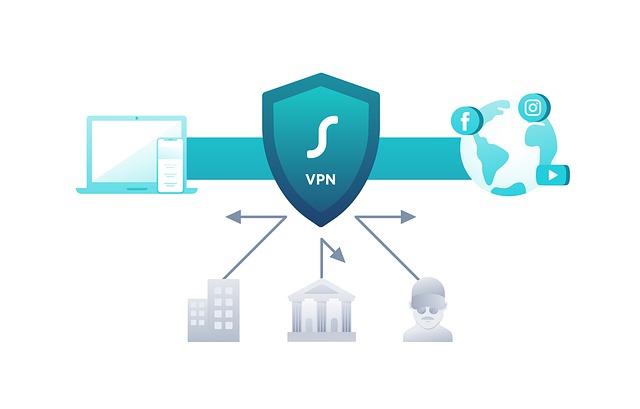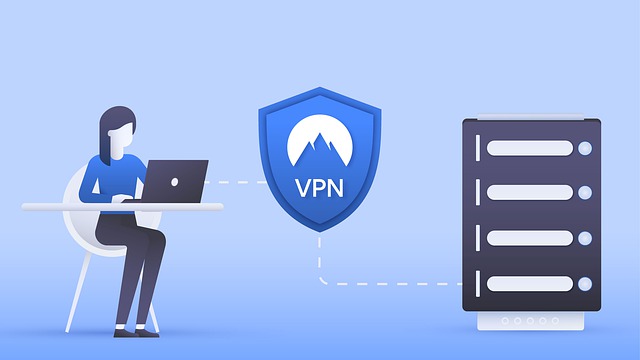In this post, we will discuss the VPN encryption protocols.
VPN services have found widespread use among individuals and corporate organizations, especially for their data encryption abilities. Different VPN services use different encryption protocols to encrypt users’ data traffic.
Here, I will unravel the encryption protocols VPN service providers use and how they encrypt data.
Table of Contents
VPN Encryption Protocols Explained
A virtual tunnel between your device and the VPN server (network) you’re connected to is automatically created when connected to a VPN server.
Data transmitted through this virtual encryption tunnel is encrypted (encoded) using some VPN protocols based on the VPN service provider’s preference.
The encryption protocol scrambles your data traffic into unreadable formats while transmitting it to and from your device to prevent data hijacking.
READ ALSO: The Ultimate VPN Guide – What Is A VPN?
Is VPN Encryption Secure?
Most VPN protocols use symmetric-key encryption, which means both the users’ computers and the servers share a standard key for encrypting and decrypting data traffic from users’ devices.
The encryption protocol’s strength and complexity depend on the encryption keys’ length. Most VPNs use the AES-128 and 256bit encryption keys.
To put this in perspective, since computers use only zeros and ones to carry out tasks, then a 128-bit encryption key will consist of 128 zeros and ones in a specific combination (key), which will require 6.2X1057 possible combinations of zeros and ones to guess the right key.
The above implies that it will take approximately one quintillion (a billion x billion) years for the most powerful computer in the world with a speed of 93.02 petaflops to guess the right key combination for decrypting 128-bit encrypted data!
You guessed right; the hackers don’t have such resources, and they wouldn’t be around that much considering the impossible amount of time it will take to achieve such a feat. This gives you an idea of how secure a VPN encryption is.
Choosing the right VPN encryption protocol involves understanding your priorities and the strengths and weaknesses of each option. Consulting with a reputable VPN provider can help you select the best protocol for your needs.
Common Types Of VPN Protocols
VPN protocols refer to instructions and processes that create a secure connection between a user’s device and the VPN server. They determine how the user’s data is routed through a connection.
Based on the user’s needs, some VPN protocols emphasize security at the expense of speed. However, a suitable VPN protocol should be optimized for speed and security.
1. OpenVPN
OpenVPN protocol uses a combination of SSL (Secure Socket Layer) and TSL (Transport Layer Security) encryption to establish a secure connection tunnel between the user’s device and the VPN server.
A VPN encryption protocol comprises two components: the data channel and the control channel encryption.
- The data channel: The data channel uses an encryption algorithm (cipher) to scramble data traffic from the user’s device.
- The Control channel encryption: The control channel encryption uses Transport Layer Security (TSL)to establish a secure connection between a user’s computer and the VPN, combining hash authentication, handshake encryption, and cipher.
2. IKEv2/IPsec
Microsoft and Cisco designed Internet Key Exchange version 2 to succeed IKEv1. IKEv2 creates a secure connection between a user’s device and the VPN server using a security association protocol (SA protocol) to authenticate the user’s device and the VPN server.
IKEv2 uses a symmetric encryption key to authenticate the user’s device and the VPN server and establish a secure connection between them.
Mobile devices widely use it to create reasonably secure and fast VPN protocols, and it is preferred over OpenVPN protocols for stability.
3. L2TP/IPsec
The Internet Service Provider (ISP) uses the Layer Two Tunneling Protocol (L2TP) to smooth online VPN functioning.
L2TP uses a combination of PPTP (point-to-point Tunneling Protocol) and (Layer 2 Forwarding Protocol) (L2F) to create a secure connection between a user’s device and the VPN server.
L2TP slows internet connectivity speed, relies on IPSec to encrypt and authenticate data traffic between the user’s device and the VPN server, and does not have intelligent tools to bypass firewalls.
4. WireGuard
WireGuard is a new VPN protocol created to offer advantages in aspects where OpenVPN and IPsec are lacking.
Hence, it gives users a highly stable connection, simple setup, and lighter codebases of about 4000 lines (making spotting bugs easier), about 1% of OpenVPN and IPsec’s codebases.
READ ALSO: Best VPN For 2023: Top Picks Reviewed by Our VPN Experts
Common VPN Encryption Protocols: Frequently Asked Questions
What are common VPN encryption protocols?
A VPN encryption protocol dictates how data is scrambled and secured while traveling between your device and the VPN server. Some of the most common VPN encryption protocols include:
- OpenVPN: Known for its strong security and open-source nature, allowing for independent audits and scrutiny.
- IKEv2/IPsec: A combination that offers a good balance of security and speed. IKEv2 handles the key exchange, while IPSec encrypts the data.
- L2TP/IPsec: Similar to IKEv2/IPsec, L2TP acts as a tunneling protocol, and IPSec provides encryption.
- WireGuard®: A newer, lightweight protocol that prioritizes speed and ease of use while maintaining strong encryption.
- SSTP (Secure Socket Tunneling Protocol): A Microsoft-developed protocol that offers good compatibility with Windows devices but may be less secure than other options.
Which encryption protocols might be used to secure a VPN?
The specific protocol a VPN service uses depends on the provider. Most reputable VPNs offer a choice between several protocols, allowing you to prioritize security, speed, or compatibility based on your needs.
READ ALSO: How to Use a VPN to Protect Your Online Privacy
What encryption should I use for a VPN?
The ideal encryption protocol depends on your priorities:
- For maximum security: Choose OpenVPN or IKEv2/IPsec.
- For a balance of security and speed: Consider IKEv2/IPsec or WireGuard®.
- For ease of use and compatibility: WireGuard® or SSTP might be suitable options (though keep security in mind with SSTP).
What are the 4 main types of VPN?
There isn’t a standardized categorization into “4 main types” of VPNs. However, VPNs can be broadly classified based on their functionality:
- Remote Access VPN: Allows secure connection to a private network, often used for corporate access.
- Site-to-Site VPN: Connects two separate networks for secure data exchange, commonly used by businesses.
- Point-to-Point VPN: Creates a secure tunnel between two individual devices.
- Mobile VPN: Designed for use with smartphones and tablets, often focusing on ease of use.
What are three types of protocols used by a VPN?
There isn’t a fixed set of three protocols used by all VPNs. The most common ones include OpenVPN, IKEv2/IPsec, L2TP/IPsec, WireGuard®, and SSTP. However, some VPNs might offer additional or less common protocols.
What are the 3 main protocols that IPsec uses?
IPsec itself is a suite of protocols, not a single protocol. The three main protocols within IPSec are:
- Authentication Header (AH): Ensures data integrity and origin verification.
- Encapsulating Security Payload (ESP): Encrypts data for confidentiality.
- Internet Key Exchange (IKE): Establishes a secure tunnel and manages key exchange for encryption and authentication.
Wrap-Up: What Is The Best VPN Encryption Protocol?
Since WireGuard is a ‘work in progress’ VPN protocol, it is best to settle for OpenVPN protocol since it offers users speed, a highly secure connection, and a reasonably stable connection.
Although there are many more VPN protocols than listed here, it is best to choose a suitable one optimized for speed and data security.
Note: This was initially published in July 2020, but has been updated for freshness and accuracy.
RELATED POSTS
- 15 Best VPNs For Coronavirus Quarantine Holiday [100% WORKING]
- Full PureVPN Review
- Why End-to-End Email Encryption Is the Way To Go
- Taming the IoT in the Wild: How To Secure Your IoT Devices
- VPN vs SDP: Which Technology Is Best for You?
- Adware Vs Ransomware Showdown: Decoding the Threat
- LastPass’ Android Version Uses Seven Built-In Trackers
About the Author:
Amaya Paucek is a professional with an MBA and practical experience in SEO and digital marketing. She is based in Philippines and specializes in helping businesses achieve their goals using her digital marketing skills. She is a keen observer of the ever-evolving digital landscape and looks forward to making a mark in the digital space.
Meet Angela Daniel, an esteemed cybersecurity expert and the Associate Editor at SecureBlitz. With a profound understanding of the digital security landscape, Angela is dedicated to sharing her wealth of knowledge with readers. Her insightful articles delve into the intricacies of cybersecurity, offering a beacon of understanding in the ever-evolving realm of online safety.
Angela's expertise is grounded in a passion for staying at the forefront of emerging threats and protective measures. Her commitment to empowering individuals and organizations with the tools and insights to safeguard their digital presence is unwavering.








